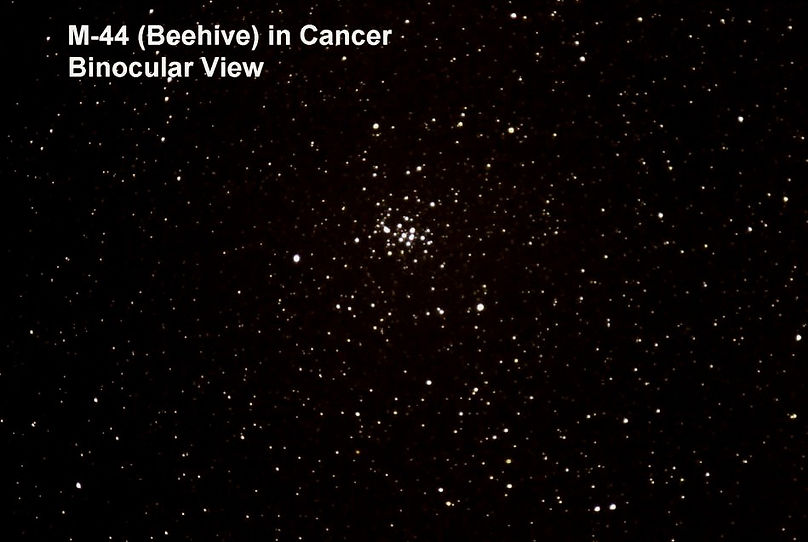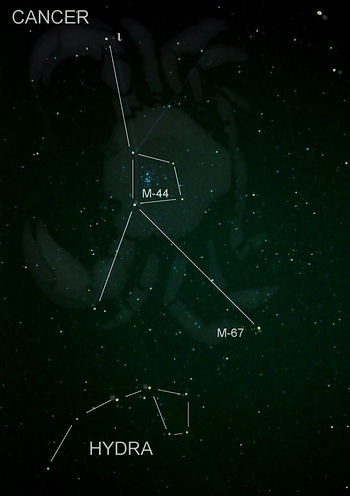

At prime time for observation (9 pm local time), this small and inconspicuous constellation is overhead in March.
A few faint stars mark an inverted “Y” (see image). There are a few objects of interest:
Double Star: Iota (i) Cancri. This is a beautiful binary star that can be split easily at low power in a small telescope.
The contrast is spectacular with a 4.0 magnitude yellow star and 6.6 magnitude blue star.... 420 light years distant.
Star Cluster: M-44 “beehive” open cluster. This large cluster can be appreciated with binoculars or low power, small telescope.
There more than 70 stars in this swarm, spanning the same apparent size as M-45 (Pleiades)... 520 light years distant.
The cluster was called “Praesepe”. It can be spotted by the unaided eye on a moonless, dark sky.
These objects can be found in my backyard sky over Thousand Oaks, California, USA. A 80mm diameter telescope at low power shows them distinctly.
--Clear Skies!
Hal Jandorf
Observer's Corner for March


The Highlighted Constellation in March is CANCER the Crab.

